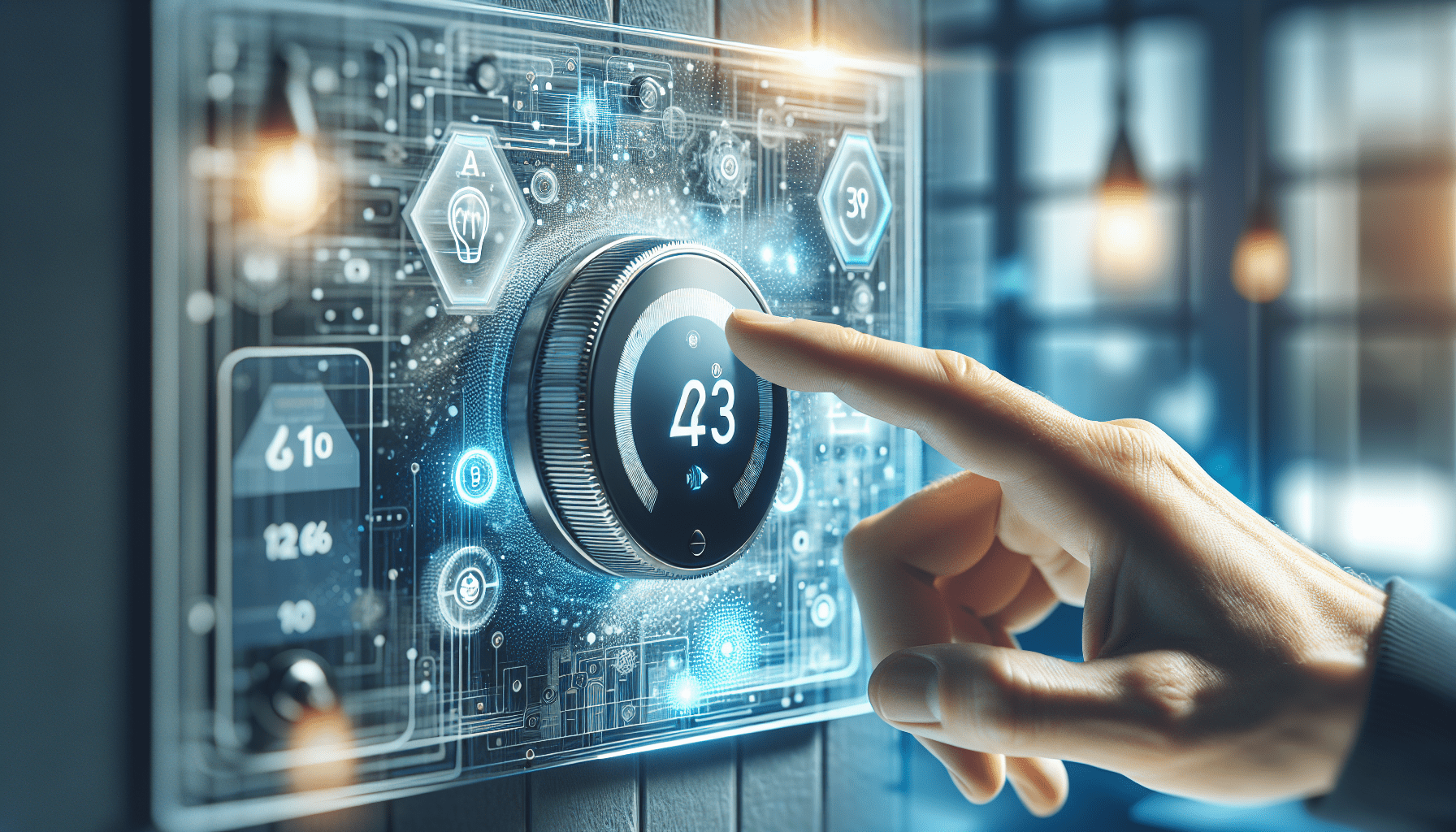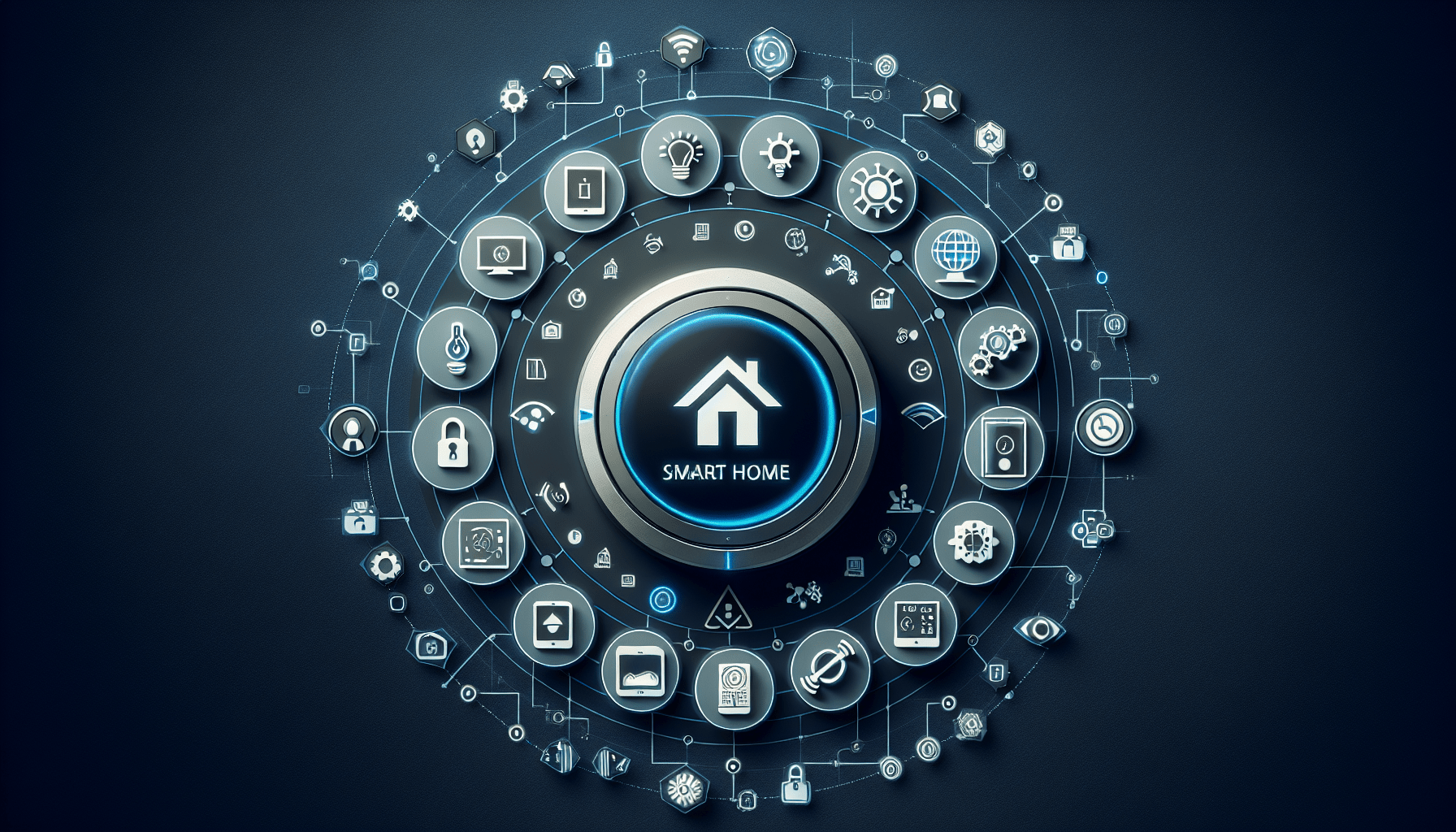In today’s modern world, where sustainability is at the forefront of our minds, the concept of a smart home has become increasingly popular. As technology advances, so do our opportunities to create a more eco-friendly living environment. But what exactly are the environmental benefits of a smart home? From reducing energy consumption to improving air quality, a smart home is not only convenient but also a crucial step towards a greener and more sustainable future.
Energy Efficiency
Reduced energy consumption
Having a smart home can significantly reduce your energy consumption. With the help of smart technologies, you can easily monitor and control your household’s energy usage. By using energy-efficient appliances and smart scheduling, you can ensure that energy is used only when needed. For example, you can schedule your washing machine to run during off-peak hours when energy rates are lower. This not only saves you money but also reduces the overall strain on the power grid.
Optimized heating and cooling
One of the fantastic features of a smart home is the ability to optimize heating and cooling systems. Smart thermostats allow you to set temperatures based on your preferences and occupancy patterns. With advanced sensors and algorithms, these devices can learn your habits and adjust the heating or cooling of your home accordingly. This means no more wasting energy on heating or cooling empty rooms.
Smart lighting systems
Smart lighting systems are not only convenient but also energy-efficient. They allow you to control your lights remotely and set schedules to avoid unnecessary usage. Additionally, smart lights often come with motion sensors, ensuring that lights are only turned on when someone is present. With these features, you can save energy and reduce your electricity bills while still enjoying a well-lit home.
Water Conservation
Efficient water usage
A smart home can help you efficiently use water resources. Smart irrigation systems, for example, use sensors to monitor the moisture levels of your garden soil and adjust watering accordingly. This prevents overwatering and ensures that your plants receive just the right amount of water they need, saving both water and money. Similarly, smart faucets and showerheads can regulate water flow and provide you with real-time usage data to promote awareness and conservation.
Leak detection and prevention
Water leaks can go unnoticed for days, causing significant water wastage and damage to your home. Fortunately, smart home technology can help detect and prevent such leaks. Smart water leak sensors can be placed near potential sources of leaks, such as pipes and appliances, and send alerts to your smartphone if any leaks are detected. By promptly addressing leaks, you can conserve water, avoid unnecessary repairs, and prevent costly water damage.
Waste Reduction
Smart recycling
Smart home technology can also contribute to waste reduction efforts. Smart recycling bins come equipped with sensors that can identify and sort recyclable materials. They make recycling easier by providing clear instructions on what items can be recycled and ensuring proper separation of waste. By promoting recycling habits and reducing contamination, smart recycling systems contribute to a greener environment and a more sustainable future.
Decreased food waste
Food waste is a significant environmental concern, and smart home technology can help tackle this issue. Smart refrigerators are equipped with inventory management systems that keep track of your food items and their expiration dates. They can provide you with real-time updates on what needs to be consumed or disposed of, reducing the chances of food spoiling and going to waste. This not only helps save money but also reduces the energy and resources used in producing and disposing of food.
Air Quality Improvement
Smart ventilation
Having good indoor air quality is essential for your health and well-being. Smart homes can enhance air quality by integrating smart ventilation systems. These systems monitor and regulate the flow of fresh air into your home, ensuring it remains well-ventilated while minimizing energy loss. They can also filter incoming air, removing pollutants and allergens, and keep your home environment clean and healthy.
Air quality monitoring
In addition to ventilation, smart homes can monitor air quality to provide you with insights and alerts about pollutants or high humidity levels. Smart air quality monitors can detect volatile organic compounds (VOCs), carbon monoxide, and other harmful substances. With this information, you can take appropriate actions such as adjusting ventilation or considering air purifiers to improve the air quality in your home.
Reduced carbon emissions
By adopting smart technology and implementing energy-efficient practices, smart homes can significantly reduce carbon emissions. Smart homes prioritize the use of renewable energy sources, such as solar panels, which produce clean and sustainable electricity. When combined with energy-efficient appliances and optimized resource usage, smart homes can make a substantial contribution to reducing greenhouse gas emissions. By reducing reliance on fossil fuels and minimizing energy wastage, smart homes play a vital role in mitigating climate change.
Natural Resource Conservation
Optimized resource usage
Smart homes are designed to optimize the usage of natural resources. With the help of sensors and automation, they can regulate the consumption of electricity, water, and other resources based on real-time data and user preferences. By avoiding unnecessary usage and maximizing efficiency, smart homes promote sustainable resource usage and reduce environmental impact.
Sustainable energy sources
Smart homes are prime candidates for integrating renewable energy sources. Solar panels, for example, can be seamlessly integrated into a smart home’s energy system to generate clean and green electricity. By harnessing the power of the sun, you can reduce your reliance on traditional energy sources, decrease your carbon footprint, and contribute to a more sustainable future. In combination with energy storage systems, you can store excess energy generated during the day for use during the night or cloudy periods, further optimizing the use of sustainable energy.
Reduced Carbon Footprint
Energy-efficient appliances
Smart homes feature a wide range of energy-efficient appliances that are designed to minimize energy consumption. From smart refrigerators and dishwashers to energy-saving washing machines and LED lighting, these appliances are engineered to use less energy without compromising functionality. By utilizing these appliances, you can significantly reduce your carbon footprint and make a positive impact on the environment.
Renewable energy integration
As mentioned earlier, smart homes can easily integrate renewable energy sources such as solar panels. By generating your own clean energy, you can further reduce your reliance on traditional energy sources and decrease your carbon footprint. Smart homes enable seamless integration of renewable energy systems, allowing you to maximize your use of sustainable energy and minimize your environmental impact.
Remote Monitoring and Control
Smart energy management
One of the significant advantages of a smart home is the ability to remotely monitor and control energy usage. Through mobile apps or voice commands, you can access real-time energy data, set energy-saving preferences, and control devices even when you are away from home. This remote management enables you to actively manage and reduce your energy consumption, contributing to a greener lifestyle.
Water usage monitoring
In addition to energy management, smart homes provide insights and control over water usage. With water usage monitoring systems, you can track your water consumption patterns, identify areas of improvement, and take necessary actions to conserve water. Whether it’s reducing shower duration or identifying leaks, having this information at your fingertips empowers you to actively participate in water conservation efforts.
Waste management
Smart homes also offer remote monitoring and control capabilities for waste management. You can receive notifications when your trash bins are full, ensuring timely disposal and preventing overflowing bins. By optimizing waste management practices and promoting responsible waste disposal, smart homes contribute to reducing landfill waste and promoting recycling.
Smart Appliances
Energy-saving features
Smart appliances are designed with energy-saving features that can help you reduce your energy consumption. These appliances often have sensors and AI capabilities that optimize their operation based on usage patterns, energy rates, and user preferences. For example, smart washing machines can determine the optimal wash cycle and water temperature, ensuring efficient cleaning while minimizing energy and water usage. By investing in smart appliances, you can make your home more energy-efficient and environmentally friendly.
Smart scheduling and automation
Smart appliances offer the convenience of smart scheduling and automation. You can set specific times for your appliances to operate based on your needs and preferences. For example, you can schedule your dishwasher to run during off-peak hours when electricity rates are lower. By automating tasks and optimizing energy usage, you can minimize waste and maximize efficiency, ultimately reducing your environmental impact.
Improved Indoor Environment
Temperature and humidity control
Smart homes excel at providing precise control over the indoor environment, including temperature and humidity levels. With smart thermostats and humidity sensors, you can easily adjust and maintain the desired comfort levels in your home. This not only increases your overall well-being but also helps optimize energy usage by avoiding excessive heating or cooling. By creating a comfortable and energy-efficient indoor environment, smart homes contribute to a greener lifestyle.
Smart air purifiers
Indoor air pollution is a concern for many households. Smart air purifiers can effectively remove pollutants, allergens, and odors from your home’s air. Equipped with advanced sensors, these devices can automatically detect and filter out harmful particles, ensuring you and your family breathe in clean and healthy air. By maintaining good indoor air quality, smart homes support a healthier lifestyle while reducing the need for harmful chemical air fresheners or purifiers.
Integration with Renewable Energy
Solar panel integration
Smart homes seamlessly integrate solar panels into their energy systems. By harnessing the power of the sun, these systems generate clean and renewable electricity, reducing dependence on traditional energy sources. The electricity generated from solar panels can be used to power your smart home devices, charge electric vehicles, or even be sold back to the grid, further promoting sustainable energy practices.
Battery storage and management
Integrating battery storage systems with renewable energy sources is another significant benefit of smart homes. Electric energy generated from renewable sources can be stored in batteries, allowing you to use it during times when the sun is not shining or wind is not blowing. By efficiently managing the storage and distribution of renewable energy, smart homes ensure a constant and reliable power supply while reducing reliance on fossil fuels.
In conclusion, smart homes offer numerous environmental benefits that contribute to a greener and more sustainable future. From energy efficiency and water conservation to waste reduction and improved air quality, the integration of smart technology into our homes enables us to actively participate in environmental stewardship. By optimizing resource usage, reducing carbon emissions, and integrating renewable energy sources, smart homes empower individuals to make a positive impact on the environment while enjoying the comforts and conveniences of modern technology.




